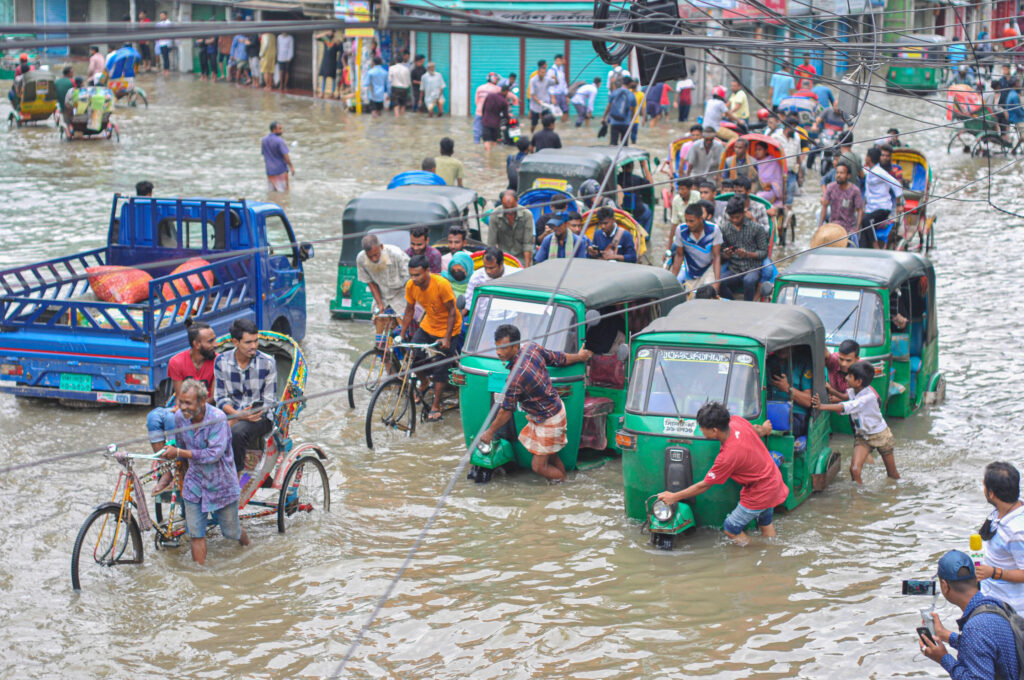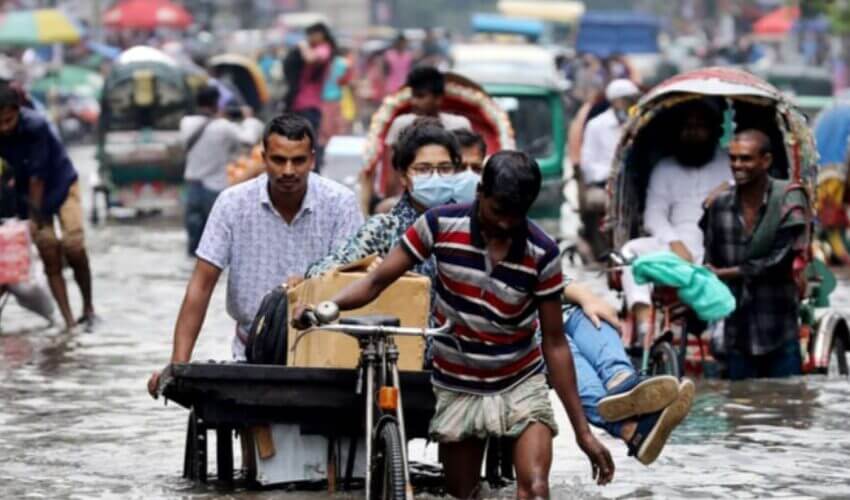Devastating Floods in India: Unraveling the Impact on Public Health

India, a country renowned for its diverse landscapes and rich cultural heritage, has recently faced an alarming increase in the frequency and intensity of floods. The 2023 floods have brought catastrophic consequences, affecting millions of lives and posing significant challenges to public health. These floods, as many natural disasters do, leave a devastating impact on public health in India.
The Magnitude of the Disaster
The 2023 floods in India have been characterized as some of the worst in recent history. Several states, including Kerala, Assam, Maharashtra, Bihar, and Karnataka, have witnessed an onslaught of heavy rainfall, leading to overflowing rivers, landslides, and submerging vast areas of land. With entire communities displaced and critical infrastructure damaged, the floods have created a humanitarian crisis, pushing local healthcare systems to their limits. Down the line, we’ll see first-hand the lasting effects these floods will have on India’s most vulnerable population – the working poor.
Waterborne Diseases and Sanitation Issues
One of the most immediate public health concerns during floods is the increased risk of waterborne diseases. Contaminated water sources become breeding grounds for pathogens like bacteria, viruses, and parasites. Diarrheal diseases, cholera, typhoid fever, and hepatitis A are common threats faced by flood-affected communities. Lack of access to clean water and proper sanitation facilities exacerbates the situation, putting vulnerable populations, especially children and the elderly, at higher risk.
Vector-Borne Diseases and Mosquito Proliferation
Apart from waterborne diseases, the stagnant floodwaters create an ideal breeding environment for disease-carrying mosquitoes, such as those responsible for dengue, malaria, and chikungunya. The surge in the mosquito population after floods poses additional health challenges, with already overwhelmed healthcare facilities struggling to manage the influx of patients.
Mental Health Impacts
Floods can be traumatic experiences for individuals and communities. The loss of homes, livelihoods, and loved ones can have severe psychological repercussions. Post-Traumatic Stress Disorder (PTSD), anxiety, depression, and other mental health issues can emerge in the aftermath of such disasters. The lack of mental health support and resources in flood-hit regions further compounds the problem, making it vital to address the psychological toll on the affected population.
Disruption of Healthcare Services
Floods can severely disrupt healthcare services in impacted areas. Health centers and hospitals may be damaged or rendered inaccessible, leading to a shortage of medical supplies and personnel. Additionally, patients with chronic illnesses or those requiring regular medical attention may face challenges in accessing healthcare facilities, putting their well-being at risk.
Malnutrition and Food Insecurity
Floods often devastate agricultural lands and disrupt food supply chains. Crop failure and destruction of stored food can lead to food shortages, increasing the risk of malnutrition, especially among vulnerable populations such as children and pregnant women. Malnutrition weakens the immune system, making individuals more susceptible to diseases and complicating their recovery.
Indian Government Efforts
Local Indian governments have been taking significant steps to support their citizens affected by natural disasters, particularly floods. It is evident that authorities in Maharashtra and Mangalore are actively providing aid and compensation to those impacted by floods. The Maharashtra government has pledged to pay double financial assistance to flood-affected farmers through the National Disaster Response Fund (NDRF), as reported by the Indian Express. This move aims to alleviate the economic burden faced by farmers who have suffered crop losses due to floods. Additionally, the Hindu highlights the Mangalore government’s initiative to provide compensation for the loss of household articles during floods. This action indicates the local government’s commitment to helping residents recover and rebuild their lives after such calamities. By offering financial aid and support, local Indian governments are demonstrating their dedication to the well-being and welfare of their citizens during times of crisis.
Soondra’s Role
Soondra’s primary goal is to address the disparities in India’s healthcare system. In India, patients are required to pay in advance for medical treatment and care. This poses a significant challenge for the working poor who lack savings for unforeseen medical emergencies. Consequently, many families resort to borrowing from loan sharks or selling valuable assets, such as cows and land.
Relying on donations, Soondra offers upfront cash-grants to its partners, enabling community members to afford emergency healthcare expenses. Given the recent floods, numerous families are likely to face adverse impacts and require urgent medical attention. Your contributions can make a difference by ensuring that some of India’s most vulnerable communities receive critical and life-saving medical aid.


